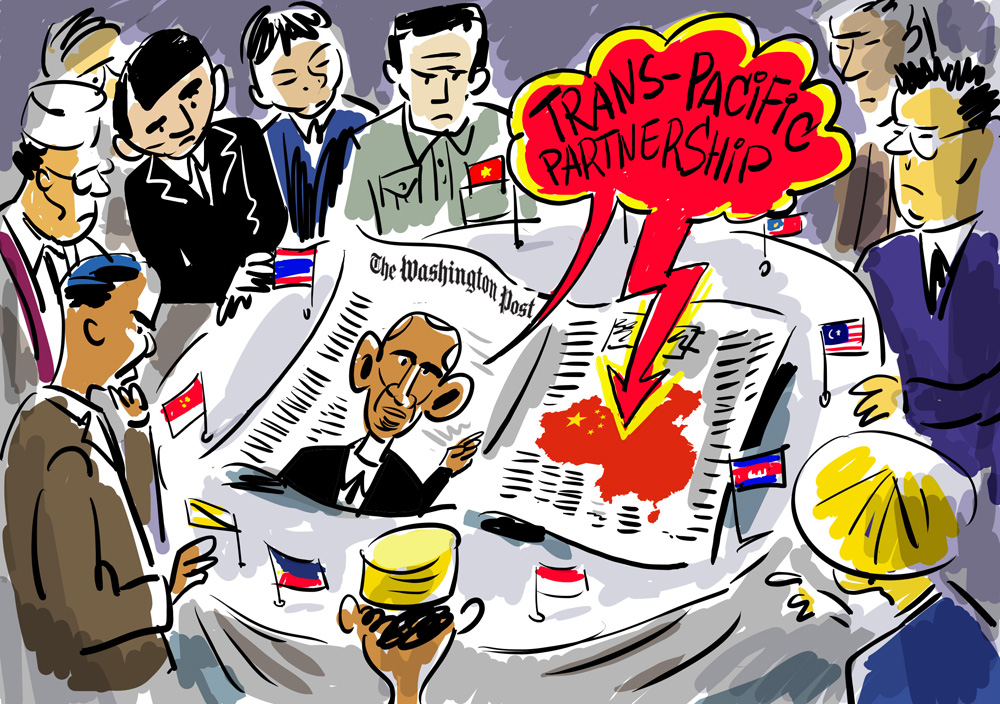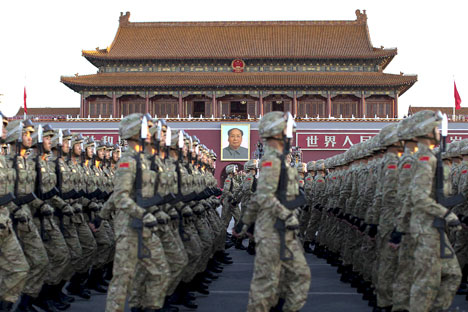Anti-China rhetoric makes TPP less appealing - Russian expert

U.S. President Barack Obama in an opinion piece in the Washington Post on May 2 called on the Congress to approve the agreement on the Trans-Pacific Partnership (TPP) as soon as possible. He noted that such a move would allow the U.S. to set the rules of international trade.
“The world has changed. The rules are changing with it. The United States, not countries like China, should write them. Let's seize this opportunity, pass the Trans-Pacific Partnership and make sure America isn't holding the bag, but holding the pen,” Obama wrote.
Obama noted that China is also actively discussing the rules of trade with other Asia-Pacific countries. He said multilateral agreements under the auspices of Beijing could theoretically “carve up some of the fastest-growing markets in the world at our expense, putting American jobs, businesses and goods at risk.”
In response, the Chinese Foreign Ministry said the rules of international trade should be established by all countries together and not be dictated by one party.
Obama’s opinion piece is an unexpected example of blatant propaganda. It is clear now that the main goal of the American President is to convince the U.S. Congress to ratify the TPP agreement as soon as possible. So Obama, first of all, needs to talk about the benefits of the agreement for Americans.
It would have served Obama well to briefly mention that the TPP could bring benefits for other participants and the entire Asia-Pacific region. However, in Obama’s opinion the countries in the region are apparently not equal partners of the United States, but a promising testing ground for American potential.
China is the only country that is mentioned in the text besides the United States.
What is most striking is Obama’s aggressive anti-Chinese rhetoric. It creates a strange feeling that for the U.S., having an external enemy is the only way to stimulate internal political and economic unity.
This approach could work for domestic U.S. audiences, but Obama makes it sounds like official foreign policy strategy and an open challenge to China, which, incidentally, still very cautiously and diplomatically responds to the TPP.
Such a transformation of the TPP from an agreement “in the name of universal economic well-being” to an agreement “against China” greatly reduces its appeal. Another thing that could be read from the opinion piece that has never been revealed by Americans is that the TPP agreement is actually seen as opposing the Regional Comprehensive Economic Partnership (RCEP), a proposed free trade agreement (FTA) between ASEAN and the six states with which it already has FTAs.
The juxtaposition of the RCEP and the TPP is imprudent, as it could deter Asian countries involved in both agreements. Seven of the 12 TPP members are part of both agreements. These countries consider the two agreements to be complementary and are not ready to choose between the U.S. and China.
Even if Obama’s article inspires the U.S. Congress to ratify the agreement, it can wreck havoc when it comes to Washington’s relations with its foreign partners. The article could literally be used by TPP’s opponents in Asia as proof that the agreement exclusively promotes American interests.
Natalia Stapran is the Director of the Russian APEC study center at Russian Presidential Academy of National Economy and Public Administration (Ranepa)
Originally published in Russian at kommersant.ru
All rights reserved by Rossiyskaya Gazeta.
Subscribe
to our newsletter!
Get the week's best stories straight to your inbox

